Fritextsökning
Artiklar per år
Innehållstyper
-

Anna Törner: The minute between life and death
“I have never told anyone about this day that happened more than 20 years ago. But I sometimes reflect on what happened, on what might have happened. When I try to understand why I haven’t told anyone, I find the answer: a feeling of shame. There is no forgiveness for something like this, even though it is very human to be distracted for a moment,” Anna Törner writes in a column.
-

New drug alert in the US: Rise in overdoses linked to the use of drugs for animals
A combination of the synthetic drugs fentanyl and xylazine, an animal tranquilizer, has been labelled a “growing threat” by the White House due to its role in the ongoing opioid crisis in the US.
-

Fem saker du måste veta om AI 2023
Är ditt jobb hotat av maskininlärning? Varför är det viktigt att hänga med i utvecklingen inom artificiell intelligens? Här får du svar på vad du behöver veta om AI just nu.
-

A surprising discovery about the immune system in cases of cancer
Professor Göran Jönsson is trying to understand why some patients benefit from immunotherapies while others don’t. A couple of years ago, he made a surprising discovery about the function of the immune system.
-

Precision medicine centre: “Extensive activity on several fronts”
Two years ago, the Karolinska Institutet and the Karolinska University Hospital announced that they would jointly launch the Precision Medicine Centre. Medtech Magazine called Anna Wedell, who is heading the work, to find out…
-
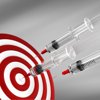
Hög aktivitet på Precisionsmedicinskt centrum
För två år sedan meddelade Karolinska institutet och Karolinska universitetssjukhuset att de tillsammans skulle sjösätta Precisionsmedicinskt centrum. Medtech Magazine ringde upp Anna Wedell, som leder arbetet, för att ta reda på…
-

"Unclear proposal from the EU Commission on how to solve the MDR challenges"
Even before the EU regulation on medical devices (MDR) came into force, medical technology companies and doctors were concerned that it would endanger the availability of medical devices in the EU. Unfortunately, the fears have come true.
-

The stomach medication that became the biggest blockbuster of the 1990s
The omeprazole molecule was synthesised as early as 1979, but it took many years before the then Astra had an approved pharmaceutical. Once this happened, a tablet was available that was soon to help millions of people worldwide and break all sales records.
-

Neanderthal genes and Nobel Prize in a popular lecture at Bioscience
An inherited gene variant from our ”evolutionary cousins” – the extinct Neanderthals – may affect how our bodies break down certain drugs. “It’s only a matter of time before we actively start screening for it,” said KI researcher Hugo Zeberg when describing the study at Bioscience 2022.
-

“We aim to be a start-up company with an academic spirit”
Chronic pain and Alzheimer’s are two diseases that plague many people worldwide and seem impossible to cure. However, Huddinge-based company Alzecure is working on developing drugs for both conditions.
-
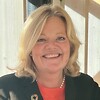
“We need to keep investing in research and innovation”
Jenni Nordborg has worked for just over four years to highlight life science in Sweden. Her mandate as national coordinator ends in December 2022. ““Life sciences has been a long-term priority of governments since many years and I have no doubt that the ambitions will be strong going forward”, says Jenni Nordborg.
-

Anders Blanck about his 17 years at Lif: “The industry is enjoying greater public trust now"
The announcement came as a surprise to those around him, but according to the protagonist himself, the timing was excellent. Anders Blanck is now leaving Lif – a decision that has been growing for some time. “I have been pretty much married to my mission. However, I will turn 56 this autumn, and if I’m going to do something else in my professional life, now is the time,” he says.
-

Genes from Neanderthals can affect the correct drug dosage
A fifth of all Europeans carry gene variants inherited from Neanderthals, which cause certain drugs to break down more slowly. This may have implications for the drug doses they should take.
-
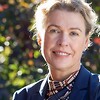
Anna Törner: Kalashnikovs in a new guise
Thanks to resisting European regulatory authorities, Europe has been spared the opioid epidemic. In the 1960s, the situation was the opposite as the American pharmaceutical authority, the Food and Drug Administration (FDA), refused to approve thalidomide (Neurosedyn), writes Anna Törner in a column.
-

Amorphous materials take centre stage when Orexo develops new formulations
Swift resolution but with maintained stability. Orexo’s new drug delivery platform tackles the problem of amorphous materials. “Our technology has the positive properties of the material, and it also cracks some of the problems,” says the company’s Research and Development Manager Robert Rönn.
-
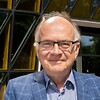
Göran Stiernstedt: “We are the world’s worst at continuity”
Failed investments in primary care, an unreasonable system with online doctors and a public failure at coordinating the healthcare IT system. Göran Stiernstedt does not mind his language when describing the shortcomings of today’s healthcare system. “It makes me extremely frustrated,” he says.
-

Eva Arlander rekryteras av Index Pharmaceuticals
Läkemedelsutvecklaren Index Pharmaceuticals har anställt Eva Arlander som Chief Development Officer och medlem i bolagets nya ledningsgrupp. Samtidigt genomförs flera andra personalförändringar.
-
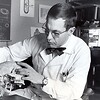
When carelessness, forgetfulness and coincidence become the researcher’s best friend
Forgetfulness, coincidence and a stroke of luck hardly make up a fruitful method of serious research. Or do they? Actually, a number of important medical advances have come about thanks to completely random incidents and the open-mindedness of scientists who were ready to think outside the box.
-

Gradientech tar in Elisabet Nielsen som vetenskaplig rådgivare
Diagnostikbolaget Gradientech rekryterar Elisabet Nielsen som vetenskaplig rådgivare i bolagets internationella vetenskapliga råd. Hon är universitetslektor och docent i klinisk farmakologi vid Uppsala universitet.
-

Universitet erbjuder platser till ukrainska forskare
Forskningslaboratorier världen över öppnar sina dörrar för forskare från Ukraina. Vid Stockholms universitet står nu flera kemilabb beredda att ta emot ukrainska kollegor.
-

The route to vaccines for everyone: “We did not just sit around and wait”
The pandemic was in full swing, and no one knew when or even if a vaccine would come. At that point, the Swedish Minister of Social Affairs called with a proposal, and Richard Bergström did not hesitate. “I already had a notion that this would work,” he says in an interview with Life Science Sweden.
-
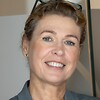
Anna Törner: Success requires bold decisions!
“Doing things right is fine, but doing the right things as soon as possible is even better”, writes Anna Törner in a column.
-

Studie: AI-system lika bra som patologer på diagnos av prostatacancer
AI-system kan identifiera och gradera prostatacancer i vävnadsprover lika bra som patologer. Det menar forskare på bland annat Karolinska institutet som genomfört en omfattande internationell validering.
-
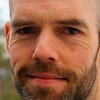
Nya life science-navet – "Väldigt positivt för regionen"
Beskedet i förra veckan om att en vaccin- och läkemedelsfabrik utanför Sundsvall ska bli Sveriges nya innovationshubb för avancerade läkemedel fick förmodligen somliga att klia sig i huvudet. – Ja, det är nog många som har sökt "Matfors" på Google Maps i